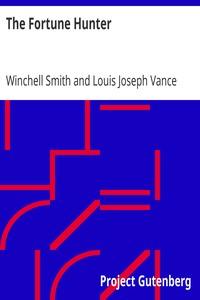Read this ebook for free! No credit card needed, absolutely nothing to pay.
Words: 44447 in 16 pages
This is an ebook sharing website. You can read the uploaded ebooks for free here. No credit cards needed, nothing to pay. If you want to own a digital copy of the ebook, or want to read offline with your favorite ebook-reader, then you can choose to buy and download the ebook.
THE WORKS
OF
EDWARD BULWER LYTTON
NIGHT AND MORNING
Book I
PREFACE TO THE EDITION OF 1845.
Long since, in searching for new regions in the Art to which I am a servant, it seemed to me that they might be found lying far, and rarely trodden, beyond that range of conventional morality in which Novelist after Novelist had entrenched himself--amongst those subtle recesses in the ethics of human life in which Truth and Falsehood dwell undisturbed and unseparated. The vast and dark Poetry around us--the Poetry of Modern Civilisation and Daily Existence, is shut out from us in much, by the shadowy giants of Prejudice and Fear. He who would arrive at the Fairy Land must face the Phantoms. Betimes, I set myself to the task of investigating the motley world to which our progress in humanity--has attained, caring little what misrepresentation I incurred, what hostility I provoked, in searching through a devious labyrinth for the foot-tracks of Truth.
In the pursuit of this object, I am, not vainly, conscious that I have had my influence on my time--that I have contributed, though humbly and indirectly, to the benefits which Public Opinion has extorted from Governments and Laws. While the ignorant or malicious were decrying the moral of Paul Clifford, I consoled myself with perceiving that its truths had stricken deep--that many, whom formal essays might not reach, were enlisted by the picture and the popular force of Fiction into the service of that large and Catholic Humanity which frankly examines into the causes of crime, which ameliorates the ills of society by seeking to amend the circumstances by which they are occasioned; and commences the great work of justice to mankind by proportioning the punishment to the offence. That work, I know, had its share in the wise and great relaxation of our Criminal Code--it has had its share in results yet more valuable, because leading to more comprehensive reforms-viz., in the courageous facing of the ills which the mock decorum of timidity would shun to contemplate, but which, till fairly fronted, in the spirit of practical Christianity, sap daily, more and more, the walls in which blind Indolence would protect itself from restless Misery and rampant Hunger. For it is not till Art has told the unthinking that nothing is too low for its breath to vivify and its wings to raise, that the Herd awaken from their chronic lethargy of contempt, and the Lawgiver is compelled to redress what the Poet has lifted into esteem. In thus enlarging the boundaries of the Novelist, from trite and conventional to untrodden ends, I have seen, not with the jealousy of an author, but with the pride of an Originator, that I have served as a guide to later and abler writers, both in England and abroad. If at times, while imitating, they have mistaken me, I am not. answerable for their errors; or if, more often, they have improved where they borrowed, I am not envious of their laurels. They owe me at least this, that I prepared the way for their reception, and that they would have been less popular and more misrepresented, if the outcry which bursts upon the first researches into new directions had not exhausted its noisy vehemence upon me.
Secondly--In this work I have sought to lift the mask from the timid selfishness which too often with us bears the name of Respectability. Purposely avoiding all attraction that may savour of extravagance, patiently subduing every tone and every hue to the aspect of those whom we meet daily in our thoroughfares, I have shown in Robert Beaufort the man of decorous phrase and bloodless action--the systematic self-server-- in whom the world forgive the lack of all that is generous, warm, and noble, in order to respect the passive acquiescence in methodical conventions and hollow forms. And how common such men are with us in this century, and how inviting and how necessary their delineation, may be seen in this,--that the popular and pre-eminent Observer of the age in which we live has since placed their prototype in vigorous colours upon imperishable canvas.--
There is yet another object with which I have identified my tale. I trust that I am not insensible to such advantages as arise from the diffusion of education really sound, and knowledge really available;--for these, as the right of my countrymen, I have contended always. But of late years there has been danger that what ought to be an important truth may be perverted into a pestilent fallacy. Whether for rich or for poor, disappointment must ever await the endeavour to give knowledge without labour, and experience without trial. Cheap literature and popular treatises do not in themselves suffice to fit the nerves of man for the strife below, and lift his aspirations, in healthful confidence above. He who seeks to divorce toil from knowledge deprives knowledge of its most valuable property.--the strengthening of the mind by exercise. We learn what really braces and elevates us only in proportion to the effort it costs us. Nor is it in Books alone, nor in Books chiefly, that we are made conscious of our strength as Men; Life is the great Schoolmaster, Experience the mighty Volume. He who has made one stern sacrifice of self has acquired more than he will ever glean from the odds and ends of popular philosophy. And the man the least scholastic may be more robust in the power that is knowledge, and approach nearer to the Arch-Seraphim, than Bacon himself, if he cling fast to two simple maxims--"Be honest in temptation, and in Adversity believe in God." Such moral, attempted before in Eugene Aram, I have enforced more directly here; and out of such convictions I have created hero and heroine, placing them in their primitive and natural characters, with aid more from life than books,-- from courage the one, from affection the other--amidst the feeble Hermaphrodites of our sickly civilisation;--examples of resolute Manhood and tender Womanhood.
The opinions I have here put forth are not in fashion at this day. But I have never consulted the popular any more than the sectarian, Prejudice. Alone and unaided I have hewn out my way, from first to last, by the force of my own convictions. The corn springs up in the field centuries after the first sower is forgotten. Works may perish with the workman; but, if truthful, their results are in the works of others, imitating, borrowing, enlarging, and improving, in the everlasting Cycle of Industry and Thought.
Free books android app tbrJar TBR JAR Read Free books online gutenberg
More posts by @FreeBooks

: The Old Gray Homestead by Keyes Frances Parkinson - Love stories; New England Fiction; Farm life Fiction


: The Fortune Hunter by Smith Winchell Vance Louis Joseph Brown Arthur William Illustrator - Fiction







